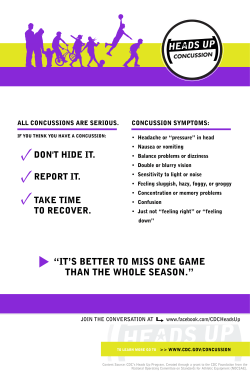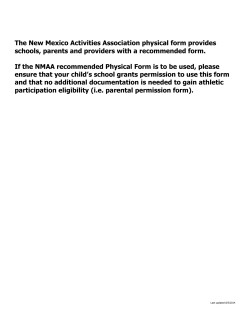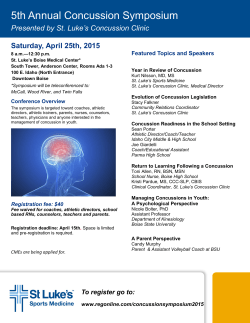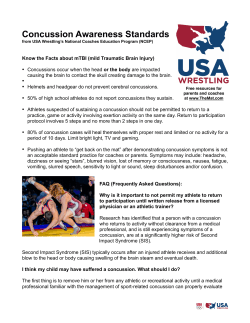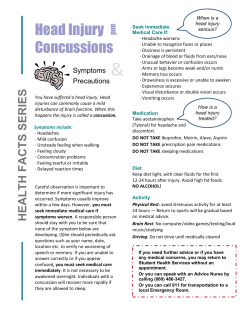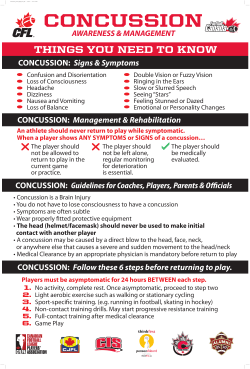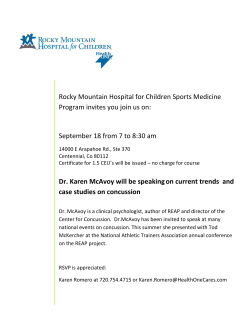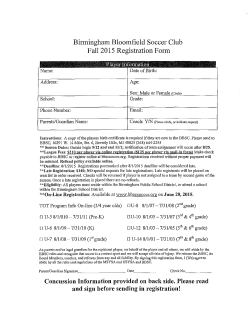
Physical Form Packet - Lawrence North Athletics
Preparticipation Physical Evaluation HISTORY FORM (Note: This form is to be filled out by the patient and parent prior to seeing the physician. The physician should keep a copy of this form in the chart.) ©2010 American Academy of Family Physicians, American Academy of Pediatrics, American College of Sports Medicine, American Society for Sports Medicine, American Orthopaedic Society for Sports Medicine, and American Osteopathic Academy of Sports Medicine. Permission is granted to reprint for noncommercial, educational purposes with acknowledgement. This form has been modified by the Indiana High School Athletic Association, Inc. (IHSAA). (1 of 4) Preparticipation Physical Evaluation PHYSICAL EXAMINATION FORM (The physical examination must be performed on or after April 1 by a Physician holding an unlimited license to practice medicine to be valid for the following school year – IHSAA By-Law C 3-10) (The physical examination must be performed on or after April 1 by a Physician holding an unlimited license to practice medicine to be valid for the following school year– IHSAA By-Law C 3-10) (2 of 4) Preparticipation Physical Evaluation IHSAA ELIGIBILITY RULES INDIVIDUAL ELIGIBILITY RULES (Grades 9 through 12) ATTENTION ATHLETE: Your school is a member of the IHSAA and follows established rules. To be eligible to represent your school in interschool athletics, you: 1. 2. 3. 4. 5. 6. 7. 8. 9. 10. 11. 12. 13. 14. 15. 16. 17. 18. 19. must be a regular bona fide student in good standing in the school you represent; must have enrolled not later than the fifteenth day of the current semester. must have completed 10 separate days of organized practice in said sport under the direct supervision of the high school coaching staff preceding date of participation in interschool contests. (Excluding Girls Golf – SeeRule 101) must have received passing grades at the end of their last grading period in school in at least seventy percent (70%) of the maximum number of full credit subjects (or the equivalent) that a student can take and must be currently enrolled in at least seventy percent (70%) of the maximum number of full credit subjects (or the equivalent) that a student can take. Semester grades take precedence. must not have reached your twentieth birthday prior to or on the scheduled date of the IHSAA State Finals in a sport. must have been enrolled in your present high school last semester or at a junior high school from which your high school receives its students . . . . . . unless you are entering the ninth grade for the first time. . . . unless you are transferring from a school district or territory with a corresponding bona fide move on the part of your parents. . . . unless you are a ward of a court; you are an orphan, you reside with a parent, your former school closed, your former school is not accredited by the state accrediting agency in the state where the school is located, your transfer was pursuant to school board mandate, you attended in error a wrong school, you transferred from a correctional school, you are emancipated, you are a foreign exchange student under an approved CSIET program. You must have been eligible from the school from which you transferred. must not have been enrolled in more than eight consecutive semesters beginning with grade 9. must be an amateur (have not participated under an assumed name, have not accepted money or merchandise directly or indirectly for athletic participation, have not accepted awards, gifts, or honors from colleges or their alumni, have not signed a professional contract). must have had a physical examination between April 1 and your first practice and filed with your principal your completed Consent and Release Certificate. must not have transferred from one school to another for athletic reasons as a result of undue influence or persuasion by any person or group. must not have received in recognition of your athletic ability, any award not approved by your principal or the IHSAA. must not accept awards in the form of merchandise, meals, cash, etc. must not participate in an athletic contest during the IHSAA authorized contest season for that sport as an individual or on any team other than your school team. (See Rule 15-1a) (Exception for outstanding student-athlete – See Rule 15-1b) must not reflect discredit upon your school nor create a disruptive influence on the discipline, good order, moral or educational environment in your school. students with remaining eligibility must not participate in tryouts or demonstrations of athletic ability in that sport as a prospective post-secondary school student-athlete. Graduates should refer to college rules and regulations before participating. must not participate with a student enrolled below grade 9. must not, while on a grade 9 junior high team, participate with or against a student enrolled in grade 11 or 12. must, if absent five or more days due to illness or injury, present to your principal a written verification from a physician licensed to practice medicine, stating you may participate again. (See Rule 3-11 and 9-14.) must not participate in camps, clinics or schools during the IHSAA authorized contest season. Consult your high school principal for regulations regarding out-of-season and summer. girls shall not be permitted to participate in an IHSAA tournament program for boys where there is an IHSAA tournament program for girls in that sport in which they can qualify as a girls tournament entrant. This is only a brief summary of the eligibility rules. You may access the IHSAA Eligibility Rules (By-Laws) at www.ihsaa.org Please contact your school officials for further information and before participating outside your school. (Consent & Release Certificate - on back or next page) (3 of 4) Preparticipation Physical Evaluation CONSENT & RELEASE CERTIFICATE I. STUDENT ACKNOWLEDGMENT AND RELEASE CERTIFICATE A. I have read the IHSAA Eligibility Rules (next page or on back) and know of no reason why I am not eligible to represent my school in athletic competition. If accepted as a representative, I agree to follow the rules and abide by the decisions of my school and the IHSAA. I know that athletic participation is a privilege. I know of the risks involved in athletic participation, understand that serious injury, and even death, is possible in such participation, and choose to accept such risks. I voluntarily accept any and all responsibility for my own safety and welfare while participating in athletics, with full understanding of the risks involved, and agree to release and hold harmless my school, the schools involved and the IHSAA of and from any and all responsibility and liability, including any from their own negligence, for any injury or claim resulting from such athletic participation and agree to take no legal action against my school, the schools involved or the IHSAA because of any accident or mishap involving my athletic participation. I consent to the exclusive jurisdiction and venue of courts in Marion County, Indiana for all claims and disputes between and among the IHSAA and me, including but not limited to any claims or disputes involving injury, eligibility or rule violation. I give the IHSAA and its assigns, licensees and legal representatives the irrevocable right to use my picture or image and any sound recording of me, in all forms and media and in all manners, for any lawful purposes. B. C. D. E. I HAVE READ THIS CAREFULLY AND KNOW IT CONTAINS A RELEASE PROVISION. (to be signed by student) Date: ____________________Student Signature: _____________________________________________________ (X) Printed: _____________________________________________________ II. PARENT/GUARDIAN/EMANCIPATED STUDENT CONSENT, ACKNOWLEDGMENT AND RELEASE CERTIFICATE A. B. C. D. E. F. G. Undersigned, a parent of a student, a guardian of a student or an emancipated student, hereby gives consent for the student to participate in the following interschool sports not marked out: Boys Sports: Baseball, Basketball, Cross Country, Football, Golf, Soccer, Swimming, Tennis, Track, Wrestling. Girls Sports: Basketball, Cross Country, Golf, Gymnastics, Soccer, Softball, Swimming, Tennis, Track, Volleyball. Undersigned understands that participation may necessitate an early dismissal from classes. Undersigned consents to the disclosure, by the student’s school, to the IHSAA of all requested, detailed financial (athletic or otherwise), scholastic and attendance records of such school concerning the student. Undersigned knows of and acknowledges that the student knows of the risks involved in athletic participation, understands that serious injury, and even death, is possible in such participation and chooses to accept any and all responsibility for the student’s safety and welfare while participating in athletics. With full understanding of the risks involved, undersigned releases and holds harmless the student’s school, the schools involved and the IHSAA of and from any and all responsibility and liability, including any from their own negligence, for any injury or claim resulting from such athletic participation and agrees to take no legal action against the IHSAA or the schools involved because of any accident or mishap involving the student’s athletic participation. Undersigned consents to the exclusive jurisdiction and venue of courts in Marion County, Indiana for all claims and disputes between and among the IHSAA and me or the student, including but not limited to any claims or disputes involving injury, eligibility, or rule violation. Undersigned gives the IHSAA and its assigns, licensees and legal representatives the irrevocable right to use any picture or image or sound recording of the student in all forms and media and in all manners, for any lawful purposes. Please check the appropriate space: The student has school student accident insurance. The student has adequate family insurance coverage. Company: The student has football insurance through school. The student does not have insurance. Policy Number: I HAVE READ THIS CAREFULLY AND KNOW IT CONTAINS A RELEASE PROVISION. (to be completed and signed by all parents/guardians, emancipated students; where divorce or separation, parent with legal custody must sign) Date: _______________ Parent/Guardian/Emancipated Student Signature:_________________________________ (X) Printed: _________________________________ Date: _______________ CONSENT & RELEASE CERTIFICATE Indiana High School Athletic Association, Inc. 9150 North Meridian St., P.O. Box 40650 Indianapolis, IN 46240-0650 (X) Parent/Guardian Signature:_________________________________ Printed: _________________________________ File In Office of the Principal Separate Form Required for Each School Year FORM D - 7/11 g:/printing/forms/schools/1112physicalform.indd (4 of 4) ATHLETIC CONSENTS AND AUTHORIZATION FORMS DATE: ___________________ This document contains (1) a consent for Community Health Network, Inc. (Community) to initiate and provide medical treatment to your student athlete in the event of an injury or illness; (2) an acknowledgement of your and the student's receipt of written information about concussions and head injuries in student athletes; (3) a HIPAA Authorization Form; (4) an acknowledgment of receipt of written information regarding sudden cardiac arrest; (5) an acknowledgement of receipt of Community's Notice of Privacy Practices; (6) an Emergency Medical and Contact Information form; and (7) a Student/Parent Certificate and Consent form. It is very important that you read and complete all of these sections and forms thoroughly and sign all sections/forms separately. If the student athlete is 18 years old or older, he or she must sign for him/herself, except for parent/guardian acknowledgement of receipt of concussion information. Parents may not sign for students who are 18 or older. Failure to follow these instructions may result in exclusion of your child from athletic programs. CONSENT FOR TREATMENT I consent to Community initiating any medical or first aid treatment for ____________________________ (name of student athlete) in the event of an accidental injury or an illness. I understand that an attempt will be made to contact me as quickly as possible in such an event. If I cannot be reached, Community may initiate the treatment that Community and its personnel believe to be in the best interest of the above-named student athlete. I acknowledge that I have read this statement, have completed and provided the school with the Emergency Contact Information Sheet, and I hereby give my consent. Signature of Parent/Guardian: ________________________________ Printed: ________________________________________ Relationship to student: _______________________________________ HIPPA AUTHORIZATION I hereby authorize Community and its personnel and/or agents, to disclose the protected health information (PHI) of _____________________________ (student's name) (Student) as follows: The PHI of the Student that may be disclosed under this Authorization includes the records of physical examinations performed by Community to determine the Student's eligibility to participate in classroom or other school sponsored activities; records of the evaluation; records and reports regarding the diagnosis and treatment of injuries which the Student incurred while engaged in school sponsored activities, including but not limited to practice sessions, training and competition; and other records as necessary to determine the Student's physical fitness to participate in school sponsored activities. The Student's PHI may be disclosed to (1) the MSD of Lawrence Township schools’ principals or assistant principals, athletic directors, coaches, teachers, school nurses or other members of the school's administrative staffs or their designees, and (2) emergency medical personnel, hospitals or any other health care professional or provider who evaluates, diagnoses or treats an injury, illness or other condition incurred by the Student while participating in a school sponsored activity, as necessary to: • Evaluate the Student's eligibility to participate in school sponsored activities, including but not limited to interscholastic or intramural sports programs, physical education classes or other classroom activities; • Document the sports medicine services provided by Community and evaluate program outcomes; • Resolve grievances; and • Evaluate treatment alternatives. I understand that Community has requested this Authorization to disclose PHI so that the school, together with Community, can make certain decisions about the Student's health and ability to participate in certain classroom and school sponsored activities in accordance with the Health Information Portability and Accountability Act (HIPAA). I also understand that the Student's participation in certain school sponsored activities is conditioned upon my signing this Authorization. I understand that I may revoke this Authorization in writing at any time prior to its expiration date, except to the extent that action has been taken by Community in reliance on this Authorization, by sending a written revocation to the athletic trainer or his/her designee. I understand that the PHI released may be subject to re-disclosure by any recipient and no longer protected by federal and/or state privacy laws. Expiration of Authorization:1 year from date signed or conclusion of the completion of sports season for which the student-athlete is participating, whichever is later. Signature of Parent/Guardian: ________________________________ Printed: ________________________________________ Relationship to student: _______________________________________ NOTE: IF STUDENT IS 18 YEARS OR OLDER, HE/SHE MUST SIGN THIS AUTHORIZATION. IF YOUNGER THAN 18, A PARENT OR GUARDIAN MUST SIGN FOR THIS AUTHORIZATION TO BE EFFECTIVE. A STUDENT SHALL NOT BE CLEARED TO PARTICIPATE IN CERTAIN SCHOOL SPONSORED ACTIVITIES (INCLUDING BUT NOT LIMITED TO SPORTS PROGRAMS) IF THIS AUTHORIZATION IS NOT SIGNED OR IF IT IS REVOKED. NOTICE OF PRIVACY PRACTICES Community has prepared a detailed NOTICE OF PRIVACY PRACTICES (NPP) to help you better understand its policies in regard to the student’s personal health information. You have the right to receive the NPP prior to signing this consent. The current NPP will be posted in the school's health clinic and in the Athletic Director's office, on Community's website, and copies are available upon request by asking the staff of the school health clinic or the athletic trainer. Signature of Parent/Guardian: ________________________________ Printed: ________________________________________ ACKNOWLEDGMENT OF CARDIAC INFORMATION Relationship to student: _______________________________________ Student Athlete Information: Last Name: ______________________ First Name: ____________________ MI: ___ Male/Female Date of Birth: ____________ Grade: ______ Medical Insurance Company: ___________________ Policy #: __________________ Group #: ________________ Physician Name: __________________________________________________ Physician Phone #: __________________________ Preferred Hospital (if any): _________________________ Allergies: ___________________________________________________ Current Medications: Name of Medication Dose Frequency Taken ___________________________________________________________ ___________________________________________________________ Does the Student Athlete have any of the following conditions (indicate yes or no): asthma ____; low blood sugar ____; diabetes ____; fainting spells ____; seizures ____; sickle cell anemia ____; others _______________________________________ May a representative of the School administer the following analgesic and/or bee sting medications to your Student Athlete? (Please indicate (yes or no): Aspirin ____; Acetaminophen (Tylenol or generic) ____; Ibuprofen (Advil, Nuprin, Motrin or generic)____; Diphenhydramine HCl (Benadryl or generic for bee or other sting) ____ Parent/Guardian Information: Parent/Guardian #1: Name:____________________________________________ Relationship to Student: ___________________ Street Address:______________________________________________ City/State:________________________ Zip:____________ Home Phone: __________________________ Work: ________________________________ Cell:__________________________ Email Address: ______________________________________________________________________________________________ Parent/Guardian #2: Name:____________________________________________ Relationship to Student: ___________________ Street Address:______________________________________________ City/State:________________________ Zip:____________ Home Phone: __________________________ Work: ________________________________ Cell:__________________________ Email Address: ______________________________________________________________________________________________ Emergency Contacts if Parent/Guardian Cannot Be Reached: Name Phone #(s) Relationship to Student 1.__________________________________________________________________________________________________________ 2.__________________________________________________________________________________________________________ 1. 2. 3. 4. 5. 6. 7. 8. STUDENT/PARENT CERTIFICATE AND CONSENT To be read and signed by parent/guardian and student Students may NOT participate in athletics until this form is on file in the Athletic Office In accordance with the rules of the IHSAA, I hereby give consent for the named student to participate in the athletic programs at the MSD of Lawrence Township. I acknowledge that the participant is assuming a certain risk of being injured and that even with the best coaching, use of protective equipment and strict observation of rules, injuries are still a possibility in organized athletics. On rare occasions these injuries can be so severe as to result in total disability, paralysis, or even death. I consent to the disclosure by the school to the IHSAA of all required detailed financial (athletic or otherwise), scholastic and attendance records of the school, including records which may concern or be related to the student, unless the student is emancipated, in which case the student gives such consent. I authorize responsible school personnel or their agents to oversee or provide emergency medical care to the student in the event of serious injury or in the event the parent/guardian cannot be reached in a timely manner. I authorize the school to investigate and obtain information from police agencies, the probation department or any other source regarding events leading up to any arrest or filing of charges for an act which would be in violation of any of the athletic rules published as part of the student handbook. I have been provided with a copy of the rules and regulations regarding athletic participation or received copies of those rules and regulations in the student handbook. I understand the rules and regulations and will comply with them as stated. I understand that the rules and regulations will be in effect for all athletes as long as they are a student in the MSD of Lawrence Township and that the rules and regulations may be updated from time to time. I understand that MSD of Lawrence Township Schools has in place a "reasonable suspicion" drug testing policy and that school personnel may order a drug test on the student if reasonable suspicion exists. I authorize the MSD of Lawrence Township Schools to post results/highlights containing my son's/daughter's name on the MSD of Lawrence Township Schools websites. Signature of parent/guardian (if student less than 18): _________________________________________________________________ Date: ____________ Signature of student (if 18 years old or older): ______________________________________________________________________ Date:____________ STUDENT CERTIFICATE (to be signed by student regardless of age): I have read the rules and regulations of the Indiana High School Athletic Association (IHSAA) and MSD of Lawrence Township Schools and believe that I am eligible to represent my school in athletics. If accepted as a representative, I agree to abide by the rules and regulations of the IHSAA and my school. To the best of my knowledge, I have suffered no injury or illness in the past that would hinder my participation in my chosen sport(s). Student Signature: _________________________________________________ Date: ___________ CONCUSSION and SUDDEN CARDIAC ARREST ACKNOWLEDGEMENT AND SIGNATURE FORM FOR PARENTS AND STUDENT ATHLETES Student Athlete’s Name (Please Print): _____________________________________________________ Sport Participating In (If Known): _______________________________ Date: ____________________ IC 20-34-7 and IC 20-34-8 require schools to distribute information sheets to inform and educate student athletes and their parents on the nature and risk of concussion, head injury and sudden cardiac arrest to student athletes, including the risks of continuing to play after concussion or head injury. These laws require that each year, before beginning practice for an interscholastic or intramural sport, a student athlete and the student athlete’s parents must be given an information sheet, and both must sign and return a form acknowledging receipt of the information to the student athlete’s coach. IC 20-34-7 states that a high school athlete who is suspected of sustaining a concussion or head injury in a practice or game, shall be removed from play at the time of injury and may not return to play until the student athlete has received a written clearance from a licensed health care provider trained in the evaluation and management of concussions and head injuries. IC 20-34-8 states that a student athlete who is suspected of experiencing symptoms of sudden cardiac arrest shall be removed from play and may not return to play until the coach has received verbal permission from a parent or legal guardian of the student athlete to return to play. Within twenty-four hours, this verbal permission must be replaced by a written statement from the parent or guardian. Parent/Guardian - please read the attached fact sheets regarding concussion and sudden cardiac arrest and ensure that your student athlete has also received and read these fact sheets. After reading these fact sheets, please ensure that you and your student athlete sign this form, and have your student athlete return this form to his/her coach. As a student athlete, I have received and read both of the fact sheets regarding concussion and sudden cardiac arrest. I understand the nature and risk of concussion and head injury to student athletes, including the risks of continuing to play after concussion or head injury, and the symptoms of sudden cardiac arrest. ____________________________________________________________ (Signature of Student Athlete) ___________________ (Date) I, as the parent or legal guardian of the above named student, have received and read both of the fact sheets regarding concussion and sudden cardiac arrest. I understand the nature and risk of concussion and head injury to student athletes, including the risks of continuing to play after concussion or head injury, and the symptoms of sudden cardiac arrest. _____________________________________________________________ (Signature of Parent or Guardian) January 2015 ___________________ (Date) P U S D HEA SION CONCUS A FACT SHEET FOR ATHLETES IN HIGH SCHOOL SPORTS What is a concussion? What should I do if I think I have a concussion? A concussion is a brain injury that: • Is caused by a bump, blow, or jolt to the head or body. • Can change the way your brain normally works. • Can occur during practices or games in any sport or recreational activity. • Can happen even if you haven’t been knocked out. • Can be serious even if you’ve just been “dinged” or “had your bell rung.” All concussions are serious. A concussion can affect your ability to do schoolwork and other activities (such as playing video games, working on a computer, studying, driving, or exercising). Most people with a concussion get better, but it is important to give your brain time to heal. • Tell your coaches and your parents. Never ignore a bump or blow to the head even if you feel fine. Also, tell your coach right away if you think you have a concussion or if one of your teammates might have a concussion. • Get a medical check-up. A doctor or other health care professional can tell if you have a concussion and when it is OK to return to play. • Give yourself time to get better. If you have a concussion, your brain needs time to heal. While your brain is still healing, you are much more likely to have another concussion. Repeat concussions can increase the time it takes for you to recover and may cause more damage to your brain. It is important to rest and not return to play until you get the OK from your health care professional that you are symptom-free. What are the symptoms of a concussion? How can I prevent a concussion? You can’t see a concussion, but you might notice one or more of the symptoms listed below or that you “don’t feel right” soon after, a few days after, or even weeks after the injury. • Headache or “pressure” in head • Nausea or vomiting • Balance problems or dizziness • Double or blurry vision • Bothered by light or noise • Feeling sluggish, hazy, foggy, or groggy • Difficulty paying attention • Memory problems • Confusion Every sport is different, but there are steps you can take to protect yourself. • Use the proper sports equipment, including personal protective equipment. In order for equipment to protect you, it must be: - The right equipment for the game, position, or activity - Worn correctly and the correct size and fit - Used every time you play or practice • Follow your coach’s rules for safety and the rules of the sport. • Practice good sportsmanship at all times. If you think you have a concussion: Don’t hide it. Report it. Take time to recover. It’s better to miss one game than the whole season. For more information and to order additional materials free-of-charge, visit: www.cdc.gov/Concussion. U.S. D EPARTMENT OF H EALTH AND H UMAN S ERVICES CENTERS FOR DISEASE CONTROL AND PREVENTION June 2010 P U S D HEA SION IN HIGH SCHOOL SPORTS CONCUS What is a concussion? A concussion is a brain injury. Concussions are caused by a bump, blow, or jolt to the head or body. Even a “ding,” “getting your bell rung,” or what seems to be a mild bump or blow to the head can be serious. What are the signs and symptoms? You can’t see a concussion. Signs and symptoms of concussion can show up right after the injury or may not appear or be noticed until days after the injury. If your teen reports one or more symptoms of concussion listed below, or if you notice the symptoms yourself, keep your teen out of play and seek medical attention right away. Signs Observed by Parents or Guardians • Appears dazed or stunned • Is confused about assignment or position • Forgets an instruction • Is unsure of game, score, or opponent • Moves clumsily • Answers questions slowly • Loses consciousness (even briefly) • Shows mood, behavior, or personality changes • Can’t recall events prior to hit or fall • Can’t recall events after hit or fall A FACT SHEET FOR PARENTS Symptoms Reported by Athlete • Headache or “pressure” in head • Nausea or vomiting • Balance problems or dizziness • Double or blurry vision • Sensitivity to light or noise • Feeling sluggish, hazy, foggy, or groggy • Concentration or memory problems • Confusion • Just not “feeling right” or is “feeling down” How can you help your teen prevent a concussion? Every sport is different, but there are steps your teens can take to protect themselves from concussion and other injuries. • Make sure they wear the right protective equipment for their activity. It should fit properly, be well maintained, and be worn consistently and correctly. • Ensure that they follow their coaches' rules for safety and the rules of the sport. • Encourage them to practice good sportsmanship at all times. What should you do if you think your teen has a concussion? 1. Keep your teen out of play. If your teen has a concussion, her/his brain needs time to heal. Don’t let your teen return to play the day of the injury and until a health care professional, experienced in evaluating for concussion, says your teen is symptom-free and it’s OK to return to play. A repeat concussion that occurs before the brain recovers from the first—usually within a short period of time (hours, days, or weeks)—can slow recovery or increase the likelihood of having long-term problems. In rare cases, repeat concussions can result in edema (brain swelling), permanent brain damage, and even death. 2. Seek medical attention right away. A health care professional experienced in evaluating for concussion will be able to decide how serious the concussion is and when it is safe for your teen to return to sports. 3. Teach your teen that it’s not smart to play with a concussion. Rest is key after a concussion. Sometimes athletes wrongly believe that it shows strength and courage to play injured. Discourage others from pressuring injured athletes to play. Don’t let your teen convince you that s/he’s “just fine.” 4. Tell all of your teen’s coaches and the student’s school nurse about ANY concussion. Coaches, school nurses, and other school staff should know if your teen has ever had a concussion. Your teen may need to limit activities while s/he is recovering from a concussion. Things such as studying, driving, working on a computer, playing video games, or exercising may cause concussion symptoms to reappear or get worse. Talk to your health care professional, as well as your teen’s coaches, school nurse, and teachers. If needed, they can help adjust your teen’s school activities during her/his recovery. If you think your teen has a concussion: Don’t assess it yourself. Take him/her out of play. Seek the advice of a health care professional. It’s better to miss one game than the whole season. For more information and to order additional materials free-of-charge, visit: www.cdc.gov/Concussion. U.S. D EPARTMENT OF H EALTH AND H UMAN S ERVICES CENTERS FOR DISEASE CONTROL AND PREVENTION June 2010 SUDDEN CARDIAC ARREST A Fact Sheet for Student Athletes FACTS Sudden cardiac arrest can occur even in athletes who are in peak shape. Approximately 500 deaths are attributed to sudden cardiac arrest in athletes each year in the United States. Sudden cardiac arrest can affect all levels of athletes, in all sports, and in all age levels. The majority of cardiac arrests are due to congenital (inherited) heart defects. However, sudden cardiac arrest can also occur after a person experiences an illness which has caused an inflammation to the heart or after a direct blow to the chest. Once a cardiac arrest occurs, there is very little time to save the athlete, so identifying those at risk before the arrest occurs is a key factor in prevention. WARNING SIGNS There may not be any noticeable symptoms before a person experiences loss of consciousness and a full cardiac arrest (no pulse and no breathing). Warning signs can include a complaint of: Chest Discomfort Unusual Shortness of Breath Racing or Irregular Heartbeat Fainting or Passing Out EMERGENCY SIGNS – Call EMS (911) If a person experiences any of the following signs, call EMS (911) immediately: If an athlete collapses suddenly during competition If a blow to the chest from a ball, puck or another player precedes an athlete’s complaints of any of the warning signs of sudden cardiac arrest If an athlete does not look or feel right and you are just not sure How can I help prevent a sudden cardiac arrest? Daily physical activity, proper nutrition, and adequate sleep are all important aspects of lifelong health. Additionally, you can assist by: Knowing if you have a family history of sudden cardiac arrest (onset of heart disease in a family member before the age of 50 or a sudden, unexplained death at an early age) Telling your health care provider during your pre-season physical about any unusual symptoms of chest discomfort, shortness of breath, racing or irregular heartbeat, or feeling faint, especially if you feel these symptoms with physical activity Taking only prescription drugs that are prescribed to you by your health care provider Being aware that the inappropriate use of prescription medications or energy drinks can increase your risk Being honest and reporting symptoms of chest discomfort, unusual shortness of breath, racing or irregular heartbeat, or feeling faint What should I do if I think I am developing warning signs that may lead to sudden cardiac arrest? 1. Tell an adult – your parent or guardian, your coach, your athletic trainer or your school nurse 2. Get checked out by your health care provider 3. Take care of your heart 4. Remember that the most dangerous thing you can do is to do nothing Developed and Reviewed by the Indiana Department of Education’s Sudden Cardiac Arrest Advisory Board (1-7-15) SUDDEN CARDIAC ARREST A Fact Sheet for Parents FACTS Sudden cardiac arrest is a rare, but tragic event that claims the lives of approximately 500 athletes each year in the United States. Sudden cardiac arrest can affect all levels of athletes, in all sports, and in all age levels. The majority of cardiac arrests are due to congenital (inherited) heart defects. However, sudden cardiac arrest can also occur after a person experiences an illness which has caused an inflammation to the heart or after a direct blow to the chest. WARNING SIGNS There may not be any noticeable symptoms before a person experiences loss of consciousness and a full cardiac arrest (no pulse and no breathing). Warning signs can include a complaint of: Chest Discomfort Unusual Shortness of Breath Racing or Irregular Heartbeat Fainting or Passing Out EMERGENCY SIGNS – Call EMS (911) If a person experiences any of the following signs, call EMS (911) immediately: If an athlete collapses suddenly during competition If a blow to the chest from a ball, puck or another player precedes an athlete’s complaints of any of the warning signs of sudden cardiac arrest If an athlete does not look or feel right and you are just not sure Developed and Reviewed by the Indiana Department of Education’s Sudden Cardiac Arrest Advisory Board (1-7-15) How can I help my child prevent a sudden cardiac arrest? Daily physical activity, proper nutrition, and adequate sleep are all important aspects of lifelong health. Additionally, parents can assist student athletes prevent a sudden cardiac arrest by: Ensuring your child knows about any family history of sudden cardiac arrest (onset of heart disease in a family member before the age of 50 or a sudden, unexplained death at an early age) Ensuring your child has a thorough preseason screening exam prior to participation in an organized athletic activity Asking if your school and the site of competition has an automatic defibrillator (AED) that is close by and properly maintained Learning CPR yourself Ensuring your child is not using any non-prescribed stimulants or performance enhancing drugs Being aware that the inappropriate use of prescription medications or energy drinks can increase risk Encouraging your child to be honest and report symptoms of chest discomfort, unusual shortness of breath, racing or irregular heartbeat, or feeling faint What should I do if I think my child has warning signs that may lead to sudden cardiac arrest? 1. Tell your child’s coach about any previous events or family history 2. Keep your child out of play 3. Seek medical attention right away
© Copyright 2025
